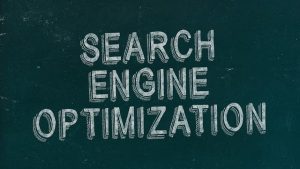SEO packages are comprehensive collections of services designed to enhance a business's online visibility through strategic keyword research, on-page optimization, link building, and content creation. Ongoing support ensures sites stay current with algorithm updates and industry trends, driving organic traffic and boosting competitiveness. To choose an effective package, businesses should assess their unique needs, evaluate provider expertise and success stories, and track key performance indicators (KPIs) like organic traffic growth, bounce rate, and conversion rates. Future trends in SEO Services include voice search optimization, UX/page speed improvements, AI-driven analytics, mobile-first indexing, and data security measures.
In today’s digital landscape, a robust Search Engine Optimization (SEO) strategy is paramount for business success. This article serves as your comprehensive guide through the intricate world of SEO Packages, equipping you with the knowledge to make informed decisions. From understanding the core components of these packages to exploring advanced techniques and real-world case studies, we delve into the essential SEO Services that drive online visibility. Discover key metrics for success and gain insights into shaping future trends, ensuring your business stays ahead in the ever-evolving digital realm.
Understanding SEO Packages: What They Include

SEO packages are comprehensive solutions designed to elevate your online presence and visibility. These packages encompass a wide range of SEO services tailored to meet specific business needs, from keyword research and on-page optimization to link building and analytics monitoring. Each package is carefully curated to ensure that every aspect of your website is optimized for search engines, driving organic traffic and improving conversions.
Understanding the components of an SEO package is essential. Typically, these packages include initial audits to assess current site performance, followed by ongoing optimization strategies, content creation or refinement, technical adjustments to improve site structure, and regular reporting on key metrics. Additionally, many packages offer ongoing support, ensuring that your website stays up-to-date with the latest search engine algorithm changes and industry trends, ultimately enhancing your online competitiveness.
Types of SEO Services: A Comprehensive Overview

When considering Search Engine Optimization (SEO) Packages, understanding the diverse range of services available is paramount. SEO Services encompass a strategic array of tactics designed to enhance online visibility and drive organic traffic to websites. These services are tailored to meet varying business needs, from keyword research and on-page optimization to link building and technical audits. Keyword research involves identifying relevant terms that potential customers use when searching for products or services, ensuring your website ranks higher in search engine results pages (SERPs).
On-page optimization focuses on refining elements within a website’s content and code, such as meta descriptions, headings, and image alt tags, to make it more relevant and accessible to search engines. Link building, another critical SEO Service, involves acquiring backlinks from reputable sources, which signal to search engines that your site is valuable and trustworthy. Technical audits delve into the backend of a website to identify issues like broken links or slow loading times, ensuring the site is optimized for both users and search engine crawlers.
Key Performance Indicators (KPIs) for Measuring Success

When evaluating the success of Search Engine Optimization (SEO) packages, understanding and tracking Key Performance Indicators (KPIs) is essential. These metrics provide a clear picture of how effective SEO services are in achieving desired outcomes. Some critical KPIs to consider include organic traffic growth, which measures the increase in visitors coming from search engine results pages without any paid advertising. A rise in this metric indicates successful optimization strategies that boost visibility.
Another vital KPI is the bounce rate, reflecting the percentage of visitors who leave the website after viewing just one page. Lower bounce rates suggest that SEO efforts are enhancing user engagement and experience, encouraging visitors to explore more pages within the site. Additionally, tracking conversion rates is crucial; this KPI measures the success of driving targeted traffic towards specific actions, such as making a purchase or signing up for a newsletter, demonstrating the tangible impact of SEO services on business goals.
How to Choose the Right SEO Package for Your Business

When selecting an SEO package, the first step is to assess your business’s unique needs and goals. Every company has different requirements when it comes to search engine optimization. For instance, a small local bakery will have distinct objectives from an international e-commerce giant. Identify key areas that need focus, such as increasing organic traffic, improving website conversions, or establishing brand authority. This understanding will help guide your choice of services within an SEO package—whether it’s keyword research and content optimization, technical SEO audits, link building campaigns, or a combination thereof.
Next, evaluate the expertise and experience of SEO agencies or service providers. Look for professionals who specialize in your industry or have proven success stories relevant to your business niche. Reputable SEO services should offer transparent reporting and regular communication, allowing you to track progress and make informed decisions throughout the optimization process. Remember, choosing the right package means aligning your goals with a provider that possesses the skills and tools to deliver measurable results.
Uncovering Hidden Gems: Advanced SEO Techniques

Uncovering hidden gems in the digital landscape is where advanced SEO techniques shine. Beyond the basics, these strategies delve into intricate aspects of search engine optimization (SEO services), ensuring your online presence stands out. It involves a meticulous process of keyword research and analysis to identify lesser-known but highly relevant terms that can significantly boost your website’s visibility.
By employing these advanced methods, SEO experts can uncover hidden opportunities for content creation and strategy refinement. This might include leveraging long-tail keywords, optimizing meta tags and descriptions with finesse, or implementing structured data markup to enrich search results. Such techniques not only enhance organic search rankings but also provide a competitive edge in an ever-evolving digital environment.
Case Studies: Real-World Examples of Effective SEO Packages

Case studies provide a powerful tool for evaluating the effectiveness of SEO services, offering real-world examples that illustrate tangible results. By examining successful implementations across various industries, businesses can gain valuable insights into what works and how to optimize their digital presence. These case studies often highlight strategic decisions made, such as keyword research, on-page optimization, link building, and content creation, all of which are core components of comprehensive SEO packages.
For instance, a study might showcase how a niche e-commerce site improved its organic traffic by 300% within six months through targeted keyword optimization and high-quality product descriptions. Alternatively, a local business may have seen a surge in map views and phone calls after implementing location-based SEO tactics, such as claiming and optimizing their Google My Business listing. These tangible outcomes serve as a testament to the power of customized SEO packages tailored to meet specific business needs.
Future Trends in SEO Services and Their Impact

The future of SEO services is dynamic, with constant evolution driven by search engine algorithms and user behavior shifts. One prominent trend involves Voice Search Optimization, as more people use voice assistants for queries, demanding natural language processing and semantic understanding from SEO strategies. Another notable development is the increased emphasis on User Experience (UX) and page speed optimization, with search engines prioritizing sites that provide seamless and fast experiences to users.
Additionally, Artificial Intelligence (AI) and machine learning will play a more significant role in SEO, enabling advanced analytics and personalized content recommendations. The rise of Mobile-First Indexing continues, reflecting the growing importance of mobile devices, and there’s also a push for more robust data security and privacy measures. These trends underscore the need for SEO service providers to stay agile, adopt innovative techniques, and maintain a deep understanding of user needs to remain effective in an ever-changing digital landscape.
